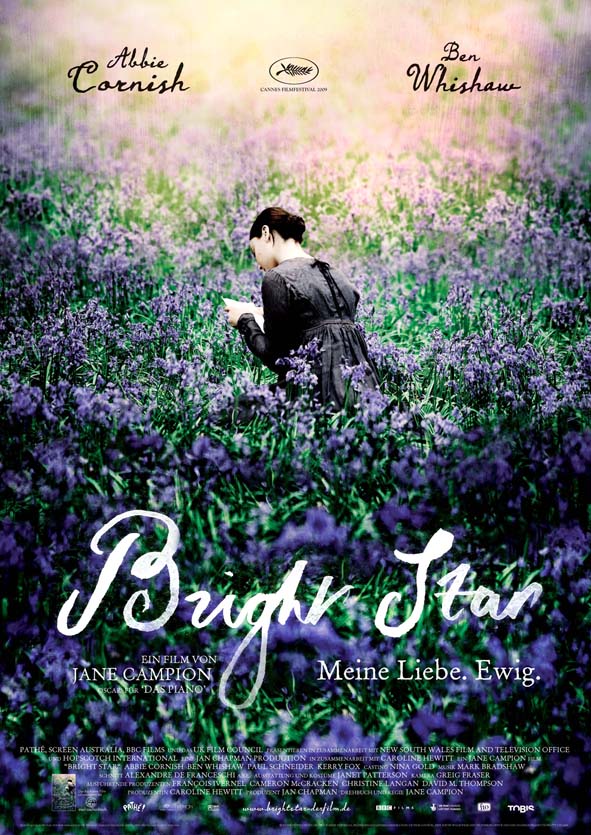
Starts December 24
 Director Jane Campion’s film is probably the most beautiful I’ve seen in several years. It is pure poetry to gaze at the fashions, hats, furniture, houses, and gardens, as the characters go about cooking, sewing, picnicking, playing in the snow, and writing. Each frame could be an early romantic painting. All Campion’s detailed research, with help from the biography by Andrew Motion, was necessary to tell the true story of the love affair between poet John Keats (Ben Whishaw) and a seamstress named Fanny Brawne (Abbie Cornish), 1818 to 1820. The film opens as John’s brother Tom dies of tuberculosis. His parents are also deceased, so, alone in the world, John moves in with his friend Charles Brown who shares a house with Fanny’s family. Both Fanny’s mother and Charles consider the liaison a mistake for different reasons: John has no financial future and Fanny prevents John from concentrating on poetry. The lovers resist outside influence, but are doomed as John also suffers from tuberculosis. He travels to Rome to recover in warmer weather and dies there in 1821, age 25.
Director Jane Campion’s film is probably the most beautiful I’ve seen in several years. It is pure poetry to gaze at the fashions, hats, furniture, houses, and gardens, as the characters go about cooking, sewing, picnicking, playing in the snow, and writing. Each frame could be an early romantic painting. All Campion’s detailed research, with help from the biography by Andrew Motion, was necessary to tell the true story of the love affair between poet John Keats (Ben Whishaw) and a seamstress named Fanny Brawne (Abbie Cornish), 1818 to 1820. The film opens as John’s brother Tom dies of tuberculosis. His parents are also deceased, so, alone in the world, John moves in with his friend Charles Brown who shares a house with Fanny’s family. Both Fanny’s mother and Charles consider the liaison a mistake for different reasons: John has no financial future and Fanny prevents John from concentrating on poetry. The lovers resist outside influence, but are doomed as John also suffers from tuberculosis. He travels to Rome to recover in warmer weather and dies there in 1821, age 25.
Campion presents them as a 19th century Romeo-and-Juliet couple: true love dies young. They unrealistically uphold absolute aestheticism, or as Keats wrote in Ode on a Grecian Urn “Beauty is truth, truth beauty—that is all Ye know on earth, and all ye need to know.” Naturally, we all know that Romeo and Juliet would have hated each other after a few years of farting under the covers and slurping the soup. After all is said and done love stories are pretty much all rather trite. Here the poems and also the film music (by Mark Bradshow, who is the same age as Keats was then) make up for it. In the film Keats says, “If poetry does not come as easily as leaves on a tree it should be abandoned.” The film’s title stems from Keats’ poem which begins “Bright Star, would I were steadfast as thou art, Not in lone splendour hung aloft the night.” The best thing about this Bright Star is that it might awaken a long-hidden desire to read more poetry.
